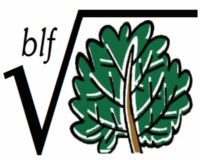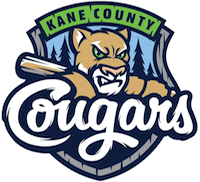

HOME
HOCKEY
OTHER
RULES
RANKINGS
HISTORY
TEAMS
Teams with asterisks are not yet posted
Aberdeen IronBirds
Acereros del Norte
Águila de Veracruz
Aigles de Trois-Rivières
Akron RubberDucks
Albuquerque Isotopes
Algodoneros de Unión Laguna
Altoona Curve
Amarillo Sod Poodles
Arkansas Travelers
Asheville Tourists
Augusta GreenJackets
Beloit Sky Carp
Billings Mustangs
Biloxi Shuckers
Binghamton Rumble Ponies
Birmingham Barons
Boise Hawks
Bowling Green Hot Rods
Bradenton Marauders
Bravos de León
Brooklyn Cyclones
Buffalo Bisons
Caliente de Durango
Capitales de Quebec
Carolina Mudcats
Cedar Rapids Kernels
Charleston Dirty Birds
Charleston RiverDogs
Charlotte Knights
Charros de Jalisco
Chattanooga Lookouts
Chesapeake Baysox
Chicago Dogs
Clearwater Threshers
Cleburne Railroaders
Columbia Fireflies
Columbus Clippers
Columbus Clingstones
Conspiradores de Querétaro
Corpus Christi Hooks
Dayton Dragons
Daytona Tortugas
Delmarva Shorebirds
Diablos Rojos del México
Dorados de Chihuahua
Dunedin Blue Jays
Durham Bulls
El Paso Chihuahuas
Erie SeaWolves
Eugene Emeralds
Evansville Otters
Everett AquaSox
Fargo-Moorhead RedHawks
Fayetteville Woodpeckers
Florence Y'Alls
Fort Myers Mighty Mussels
Fort Wayne TinCaps
Fredericksburg Nationals
Fresno Grizzlies
Frisco RoughRiders
Gary SouthShore RailCats
Gastonia Ghost Peppers
Gateway Grizzlies
Glacier Range Riders
Grand Junction Jackalopes
Great Falls Voyagers
Great Lakes Loons
Greensboro Grasshoppers
Greenville Drive
Guerreros de Oaxaca
Gwinnett Stripers
Hagerstown Flying Boxcars
Harrisburg Senators
Hartford Yard Goats
Hickory Crawdads
High Point Rockers
Hillsboro Hops
Hub City Spartanburgers
Hudson Valley Renegades
Idaho Falls Chukars
Indianapolis Indians
Inland Empire 66ers of San
Bernardino
Iowa Cubs
Jacksonville Jumbo Shrimp
Jersey Shore BlueClaws
Joliet Slammers
Jupiter Hammerheads
Kane County Cougars
Kannapolis Cannon Ballers
Kansas City Monarchs
Knoxville Smokies
Lake County Captains
Lake Country DockHounds
Lake Elsinore Storm
Lake Erie Crushers
Lakeland Flying Tigers
Lancaster Stormers
Lansing Lugnuts
Las Vegas Aviators
Lehigh Valley IronPigs
Leones de Yucatán
Lexington Legends
Lincoln Saltdogs
Long Island Ducks
Louisville Bats
Lynchburg Hillcats
Memphis Redbirds
Midland RockHounds
Milwaukee Milkmen
Mississippi Braves
Missoula Paddleheads
Modesto Nuts
Montgomery Biscuits
Myrtle Beach Pelicans
Nashville Sounds
New England Knockouts
New Hampshire Fisher Cats
New Jersey Jackals
New York Boulders
Norfolk Tides
Northern Colorado Owlz
Northwest Arkansas Naturals
Oakland Ballers
Ogden Raptors
Oklahoma City Comets
Olmecas de Tabasco
Omaha Storm Chasers
Ottawa Titans
Palm Beach Cardinals
Pensacola Blue Wahoos
Peoria Chiefs
Pericos de Puebla
Piratas de Campeche
Portland Sea Dogs
Quad City River Bandits
Rancho Cucamonga Quakes
Reading Fightin Phils
Reno Aces
Richmond Flying Squirrels
Rieleros de Aguascalientes
Rochester Red Wings
Rocket City Trash Pandas
Rocky Mountain Vibes
Rome Emperors
Round Rock Express
Sacramento River Cats
Salem Red Sox
Salt Lake Bees
San Antonio Missions
San Jose Giants
Saraperos de Saltillo
Schaumburg Boomers
Scranton/Wilkes-Barre RailRiders
Sioux City Explorers
Sioux Falls Canaries
Somerset Patriots
South Bend Cubs
Southern Maryland Blue Crabs
Spokane Indians
Springfield Cardinals
St. Lucie Mets
St. Paul Saints
Staten Island FerryHawks
Stockton Ports
Sugar Land Skeeters
Sultanes de Monterrey
Sussex County Miners
Syracuse Mets
Tacoma Rainiers
Tampa Tarpons
Tecolotes de los Dos Laredos
Tigres de Quintana Roo
Toledo Mud Hens
Toros de Tijuana
Tri-City Dust Devils
Tri-City ValleyCats
Vancouver Canadians
Visalia Rawhide
Washington Wild Things
West Michigan Whitecaps
Wichita Wind Surge
Wilmington Blue Rocks
Windy City Thunderbolts
Winnipeg Goldeyes
Winston-Salem Dash
Wisconsin Timber Rattlers
Worcester Red Sox
Yolo High Wheelers
York Revolution

| Kane County Cougars | 118 |
Notice: All logos on this page are included within the parameters of 17 U.S.C. § 107, which states that the reproduction of a copyrighted work for purposes of criticism and/or comment is not an infringement of copyright. No challenge to the copyrights of these logos is intended by their inclusion here.
Posted 2017 June 29
Puma concolor has more names than any other animal. At least, that's what the Guinness Book of World Records says. Over forty names in English. That's probably not all that surprising when you consider that it's a New World animal whose traditional range basically covers the entire New World. Basically, draw a line from Juneau, Alaska to Tadoussac, Québec (at the mouth of the Saguenay River, a bit northeast of the city of Québec), and everything on the mainland of North or South America below that line is the traditional range of this creature. With that in mind, it's no surprise there are so many names for it. Every time a European encountered this creature, they'd have asked a native American what the hell that thing was, and the answer they got would depend on which of the literally thousands of American languages the person they asked spoke. That's ample opportunity for multiple names to enter one European language or another, and of course once those names have entered a European language they have the opportunity to jump to other European languages as well.
Indeed, I'm guessing the only reason there aren't even more names is because what I wrote in the preceding paragraph isn't quite right. It would be more accurate to say that every time a European encountered this creature and survived, they would have asked a native American what the hell that thing was. And if you've ever encountered one of these creatures in the wild, you know that that surviving such an encounter is unlikely. And how do you know that? Because if you've ever encountered one of these creatures in the wild, you're probably dead. So I guess that if you've ever encountered one of these creatures in the wild then you don't know that surviving such an encounter is unlikely. You don't know anything, because you're dead. But clearly you're not dead, because you're reading this. Which means you probably haven't encountered one of these creatures in the wild. Do me a favor, will you? Forget I used that "if you've ever encountered" turn of phrase, because clearly this was the wrong time for it.
That being said, most of the names clearly aren't imported from other languages. Some of them may be literal translations of the creature's names in other languages, but for the most part the names are English compound words. I couldn't find a complete list of names, but a partial list includes the following: caracajou, catamount, catawampus, cougar, deer cat, deer tiger, devil cat, fire cat, grey lion, Indian devil, king cat, klandagi, long tail, Mexican lion, mountain lion, mountain screamer, mountain devil, painter, panther, plain lion, puma, quinquajou, red tiger, silver lion, sneak cat, and swamp lion. Most of those clearly don't come from another language. Even some of the ones you think might, don't. Catamount is simply a short form of cat-of-the-mountain, and catawumpus is apparently just an alteration of catamount (probably the result of someone trying to say catamount after having had a quart or so of bourbon).
Cougar is one of the names that does come from an American language. Given that this is one of its names in the English language and the fact that the spelling (with an "ou" for the long "oo" sound) looks French, you'd probably think it comes from a language native to what today is the Northeast and/or eastern Canada. Uh-uh. It actually comes from Tupi, a language from coastal Brazil. The Tupi word was siwasurana; this looks nothing like cougar, but etymology can be like that sometimes. Apparently siwasurana entered Portuguese as çuçurana and then— stop humming the song. I wrote çuçurana, not cucuracha. Totally different word. Those ç's are pronounced like /s/, not /k/, by the way. Somehow the word jumped from Portuguese to Latin (Latin was still being used by in academia at this point) and the soft ç's got hardened in the process, becoming cuguacarana. From th— no I didn't say guacamole. Pay attention, will you? From there it entered French as cougar (thus explaining the spelling), and then English took the word from French, and by some miracle actually didn't screw around with it like Portuguese and Latin and French had.
If there are any regional patterns to which words are used where, I couldn't find them online. Not that this matters here, of course. Kane County is in the Chicagoland suburbs, so there's not really a "local" name for this creature anymore because there probably hasn't been a cougar in the area in a century. Rather, the name was clearly chosen for alliteration. I personally it's a little bit of overkill, but whatever. As for the logo: again, whatever. It's your basic anthropomorphized cougar holding a baseball bat. No points for creativity, but it doesn't provoke a lunch-losing reaction because it's the sort of thing we've all seen dozens of times.
But you know who hasn't ever seen anything like this before? The pitcher. I'm fairly certain no pitcher has ever looked at home plate and seen a bat-wielding cougar at the plate. And that's a good thing. Because any pitcher who ever had probably didn't survive the encounter.
Final Score: 118 points.
Penalties: Region, 8 pts; Alliteration (egregious), 11 pts; Script, 7 pts;
Scenery, 11 pts; Humanoid, 30 pts; Player, 51 pts.
Bonuses: None.